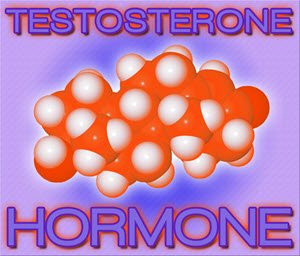Blood Tests For Women Provided By LabCorp For The Diagnosis Of Hormone Imbalance And Deficiency - Download MP3
The male hormone panel blood draw and testing is $297, the cost includes the script to get your blood taken at Quest Diagnostics or LabCorp (Preferred), the results of your blood draw will be back in 3 to 5 business days, and Doctor/Physician analysis of the testing.
 Our clinic provides quality Hormone Replacement and Restoration Products to women over the age of thirty. For us to provide a diagnosis of the highest accuracy and quality, you will need to provide a blood sample which will undergo vigorous diagnostic evaluation for a number of different conditions.
Our clinic provides quality Hormone Replacement and Restoration Products to women over the age of thirty. For us to provide a diagnosis of the highest accuracy and quality, you will need to provide a blood sample which will undergo vigorous diagnostic evaluation for a number of different conditions.
We provide these diagnostic services via our professional affiliate LabCorp, one of the most trusted and well-regarded diagnostic testing facilities in the nation. This battery of tests is known as the Complete Female Blood Panel, and will provide us with a vast array of information necessary to provide you with the treatment that you need and deserve to bolster your health and preserve your Hormone Balance.
Video Link: https://vimeo.com/294052778
Video Download: Click Here To Download Video
Video Stream: Click Here To Stream Video
The following are the tests which we will order on your behalf:
Complete Blood Count
The CBC is a test which monitors the concentrations of a variety of different blood cells which are active in your blood stream. CBC Tests include:
White Blood Cells – Organelles responsible for immune health and function, which distribute out to locations of infection or illness in order to safeguard the integrity of the human body.
Red Blood Cells – These cells are responsible for the distribution of oxygen from the lungs to the organs of the body. If you don't have enough, this can lead to fatigue, and if you have too many, this can produce issues with hypertension and other conditions related to inhibited blood flow.
Hemoglobin – Hemoglobin is a particular component of Red Blood Cells specifically designed to grab oxygen for distribution. Low levels of Hemoglobin are one of the causes of anemia, which leads to severe fatigue and other detrimental symptoms.
Platelets – Platelets are responsible for protecting the integrity of the cardiovascular system by sealing shut damaged areas through the process of clotting. Too few platelets causes you to bruise easily and can cause major issues if you experience severe damage to the cardiovascular system. Too many platelets encourages excess clotting which can increase the risk of heart attack, stroke, and other health issues related to the cardiovascular system.
 Comprehensive Metabolic Panel
Comprehensive Metabolic Panel
The CMP is a large collection of tests which are commonly prescribed in order to assess the nutrient concentrations in the blood stream, as well as the health of the primary filtration systems of the body — the liver and the kidneys.
The CMP monitors the following factors in the blood stream:
- Protein -- Protein levels in the blood are an important indicator of overall health as they build our cells and tissues. This test measures total protein and low total protein can indicate issues such as malnutrition, liver and kidney disease. An increase in protein levels can indicate inflammatory diseases, multiple myeloma and dehydration.
- Creatinine -- A waste product produced by the muscles as they produce energy to contract. Abnormal creatinine levels can indicate kidney issues as the kidneys filter it and release it into the urine.
- Blood Urea Nitrogen -- Urea is a waste product formed from the breakdown of proteins by the liver. The kidneys filter it out and release it into the urine. Testing the amount of of urea in the blood can indicate issues involving either kidneys or the liver.
- Glucose -- The primary energy source for our cells is glucose, a sugar molecule. Amazingly, it is only source for the brain and central nervous system. This is why it is imperative to have a steady amount of glucose in the bloodstream. High levels of blood glucose usually indicates diabetes, although other diseases can cause high blood sugar (hyperglycemia). Low levels (hypoglycemia) can be caused by a number of issues including adrenal insufficiency, hypopituitarism, severe liver disease and more. When left untreated, chronic high or low levels of blood glucose can cause damage to various organs.
- Carbon Dioxide -- This molecule is used by the body to maintain its pH balance and electrical neutrality. It occurs mostly in the form of bicarbonate and can indicate an electrolyte balance when tested or acidosis or alkalosis. This imbalance is usually caused by some sort of underlying disease or illness including anything that affects the lungs, breathing, kidneys or metabolism.
- Chloride -- Chloride is another electrolyte and its levels can indicate electrolyte imbalance as well. It helps in regulating fluid balance and pH. We can ingest chloride through our food or using table salt. A high level of blood chloride indicates dehydration as well as Cushing syndrome or kidney disease. Lung diseases and congestive heart failure can cause low levels of blood chloride.
- Calcium -- A very abundant mineral in our bodies, calcium is used for cell signaling and the functioning of muscles, the heart and nerves. High total calcium can indicate issues including hyperparathyroidism, usually caused by benign tumors on the parathyroid gland, cancer that has spread to the bones and hyperthyroidism. Low levels of calcium can indicate low blood protein levels resulting from liver disease or malnutrition, an under active parathyroid gland and low levels of vitamin D.
- Potassium -- Potassium is a vital electrolyte used in cell metabolism and helps to transport necessary nutrients into cells as well as removing their waste products. Most of our potassium is obtained by our diet. The normal concentration of potassium in the blood is quite small and significant changes in this concentration can have major consequences. A person can go into shock, respiratory failure or abnormal heart contractions. Drugs, such as acetaminophen, corticosteroids or "water pills", can cause low potassium levels. High levels indicate a variety of diseases.
- Sodium -- Sodium is another vital electrolyte, necessary for muscle and nerve functioning. Low levels of sodium in the blood can be caused by drinking too much water, diarrhea, kidney disease or the use of diuretics. Low levels are also caused by fluid accumulation which is due to heart failure, cirrhosis or kidney disease. High levels of sodium are mainly caused by dehydration and Cushing syndrome.
- Alanine Aminotransferase -- ALT is an enzyme used mostly by the cells of the liver and kidneys. The enzyme converts alanine, an amino acid, into pyruvate which is an important intermediate molecule used in cellular energy production. High levels of ALT in the blood indicate liver damage and testing for ALT can lead to early detection of such disease, before jaundice sets in.
- Aspartate Aminotransferase -- AST is another enzyme that is mostly found in the liver and heart. When either the liver or the muscles are damaged, elevated AST levels occur in the bloodstream. It is another useful test to screen liver health.
- Total Bilirubin -- Bilirubin is a pigment that is a waste product formed during the breakdown of heme. Heme is part of hemoglobin, a molecule found in red blood cells. Bilirubin is processed by the liver for elimination and testing for bilirubin indicates liver function and the diagnosis of anemia.
- Albumin -- Albumin is a protein produced by the liver that keeps fluid within blood vessels, nourishes tissues and transports hormones throughout the body. Low levels of this protein indicate severe liver disease and kidney disease.
Lipid Panel
The Lipid Panel is a series of tests designed to evaluate the concentration of fat molecules that are present in the blood, in particular HDL (Good) Cholesterol and LDL (Bad) Cholesterol, as well as Triglycerides. A healthy cardiovascular system will have a high ratio of HDL to LDL Cholesterol, and controlled Triglyceride Levels. Elevated LDL or Triglyceride Levels are a sign of cardiovascular risk, and may be a symptom of Hormone Imbalance, poor lifestyle choices, or other factors.
 DHEA-Sulfate Test
DHEA-Sulfate Test
DHEA-Sulfate is important for both sexes, but women are particularly susceptible to deficiency. DHEA is a precursor hormone which is converted into Estrogen. DHEA Deficiency leads to a number of issues which impede health, including increased risk of heart disease and various cancers, increased body fat, reduced Bone Mineral Density, and Reduced Libido. These symptoms are also related to feminine Testosterone Deficiency, so it is important to determine the precise source of the deficiency.
Progesterone Test
Progesterone is a feminine sex hormone produced by the ovaries that is important for a number of physiological processes related to pregnancy and the menstrual cycle, and Progesterone irregularities can lead to fertility issues in women of child-bearing age. The hormone also acts as an important neurosteroid, and encourages the normal function of the breasts.
In both sexes, Progesterone Levels decline with aging (women produce much more but experience a much sharper decline during Menopause). There are strong signs that low levels of Progesterone can degrade the health of a patient as he or she grows older.
Estradiol Test
Estradiol is another important feminine hormone which plays a role in pregnancy and the menstrual cycle. The sharp drop in Estradiol Levels during and after menopause lead to many of the symptoms of the condition, including sexual dysfunction and hot flashes. Estradiol plays a protective role in brain health and encourages the maintenance of proper Bone Mineral Density alongside Testosterone. Estradiol is frequently used as a fertility treatment.
 Total Testosterone Test
Total Testosterone Test
Women need Testosterone, just like men, albeit at much lower concentrations. In particular, Testosterone plays a major role in feminine sexual health, encouraging proper lubrication and sexual readiness while also heightening pleasure as well as sexual desire.
Total Testosterone refers to the full concentration of all forms of Testosterone in the blood stream, whether bound to Sex Hormone-Binding Globulin or unbound and free.
Free Testosterone Test
Free Testosterone, on the other hand, refers to that which is circulating through the blood stream and available for use by the body. Bound Testosterone is already in the process of utilization, so it is Free Testosterone Levels that are a sign of the normal distribution of Testosterone. A woman with low levels of Free Testosterone is likely in need of Low-T Treatment.
Thyroid-Stimulating Hormone Test
TSH is a precursor hormone which is released by the hypothalamus and encourages the release of Thyroid Hormones by the Thyroid Gland. If the hypothalamus is not producing sufficient TSH, then the body will experience issues with fatigue, temperature regulation, and metabolism.
Free Thyroxine (T4) Test
T4 is one of the products of TSH stimulation upon the Thyroid, and is responsible for many of the active effects and regulatory activities of the Thyroid Gland. When being tested for Feminine Low-T or HGH Deficiency, it is important to also be tested for T4 Deficiency because the three conditions share many symptoms in common.
 IGF-1 Test
IGF-1 Test
Insulin-Like Growth Factor-1 is one of the primary mechanisms of action with regard to Human Growth Hormone, and is the best means by which to monitor for Age-Related HGH Deficiency, also known as Secondary Hypopituitarism. As HGH Levels drop, IGF-1 Levels decline in a comparable manner.
Human Growth Hormone is quickly used up by the body as it is released, whereas IGF-1 remains active in the blood stream for days, meaning that by testing IGF-1 concentrations it is possible to provide a very accurate reading of HGH Production and the probability of HGH Deficiency.
Female Blood Panel for Accurate Hormone Deficiency Diagnosis
The human body is a complex system of interrelated factors, which means that, before initiating any form of Hormone Therapy, it is important to gain insights into the health of the system. The functions of various hormones are intricately connected, meaning that these blood tests are essential for the accurate diagnosis of a patient's underlying Hormone Status.
If you believe that you may be a candidate for Hormone Optimization, we will take all the necessary steps to make sure that the treatment that you receive is the best possible treatment to restore your health and vitality, and correct any issues related to your Hormone Health. If you are interested in the treatments we provide, we encourage you to contact us by filling out the contact form on this page or contacting us via the number on your screen!

Contact Us Today For A Free Consultation

Word Count: 2053




















